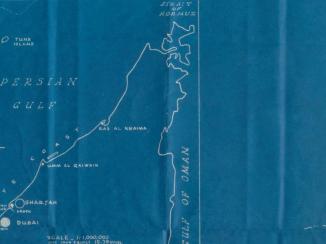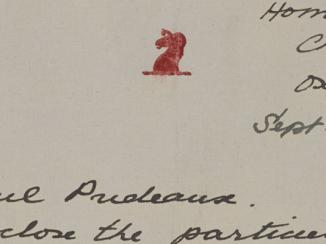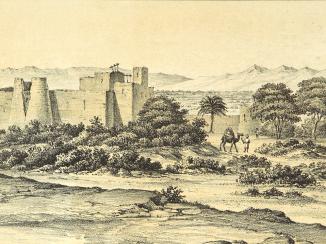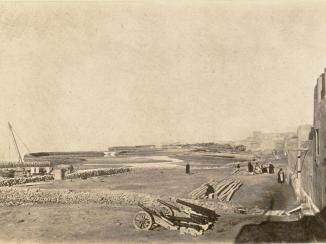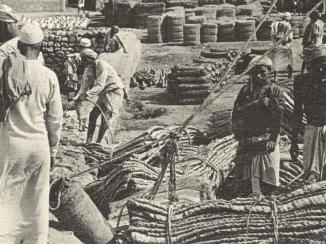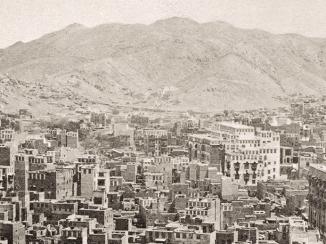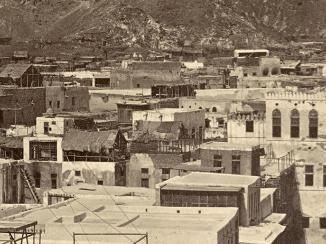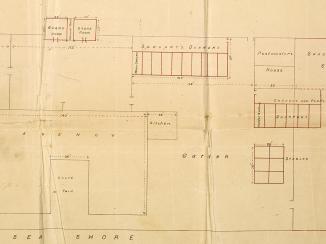Overview
The Kingdom of Bahrain is an archipelago nation in the Gulf, situated off the eastern coast of the Arabian Peninsula. Previously an Emirate, it has been a Kingdom since 2002, when the country’s current ruler, Hamad bin Isa bin Salman Al Khalifa, declared himself King.
Bahrain’s capital, Manama, is located on the largest island of the archipelago, Bahrain Island (also known as Awal Island). Muharraq City, situated opposite Manama on Muharraq Island, was the country’s capital until 1923.

The Al Khalifa family, originally from the Nejd region of what is now Saudi Arabia, have ruled Bahrain since 1783, when they captured the archipelago from the Al Madhkur family. The Al Madhkurs ruled Bahrain from their base in Bushire on behalf of the Qajar dynasty of Persia. Bahrain had been ruled from Persia since 1602 when forces of the Safavid Empire occupied the islands and forced out the Portuguese who had held them since 1521.
Throughout the nineteenth century, as Great Britain strengthened its hegemonic presence in the Gulf, the Al Khalifas signed a series of agreements with Britain. The first of these was the General Treaty with the Arab Tribes of the Persian Gulf An agreement made in 1820 between Britain and ten tribal rulers of the eastern Arabian coast, often seen as marking the start of 150 years of British hegemony in the region. of 1820, followed by subsequent agreements in 1856, 1861, 1880 and 1892. Although throughout the period Bahrain remained nominally independent and was considered a British-protected state – rather than a protectorate – as a consequence of these agreements the Al Khalifas signed away their right to wage war at sea and handed over control of foreign relations to the British in return for protection.
Britain’s position in the country was formalised in 1900 with the creation of the post of Political Agent A mid-ranking political representative (equivalent to a Consul) from the diplomatic corps of the Government of India or one of its subordinate provincial governments, in charge of a Political Agency. in Bahrain, a post that lasted until 1971. In 1926, a British official named Charles Belgrave was appointed as an adviser to Shaikh Hamad bin Isa Al Khalifa. Belgrave served in this position until 1957 and was an enormously influential figure in the country throughout this period.
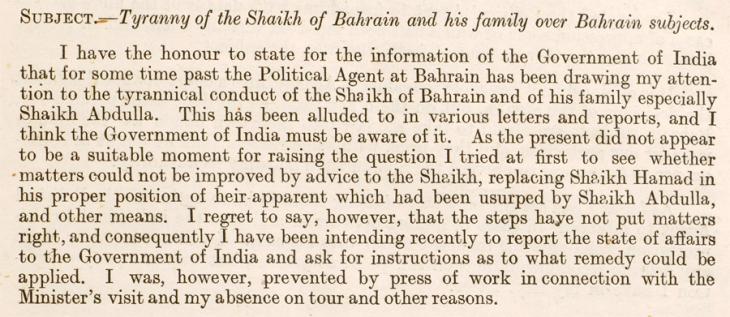
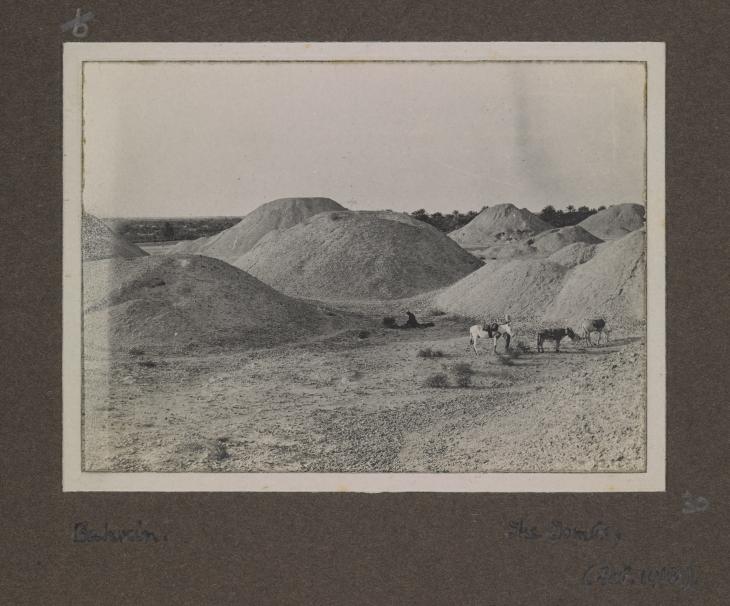
Influential, too, was the discovery of oil in 1932. Crude oil was exported for the first time in 1934 while pearl diving, which had previously formed the most important sector in the Bahraini economy, declined rapidly.
Bahrain became independent from Great Britain on 15 August 1971.
Key moments from Bahrain’s history in the India Office Records include
1820: Signing of the
General Treaty with the Arab Tribes of the Persian Gulf
An agreement made in 1820 between Britain and ten tribal rulers of the eastern Arabian coast, often seen as marking the start of 150 years of British hegemony in the region.
(IOR/R/15/1/21-IOR/R/15/1/24)
1900: Creation of the post of
Political Agent
A mid-ranking political representative (equivalent to a Consul) from the diplomatic corps of the Government of India or one of its subordinate provincial governments, in charge of a Political Agency.
in Bahrain (IOR/R/15/1/330 & IOR/R/15/2/51)
1901: Formal recognition of Shaikh Hamad bin Isa Al Khalifa as heir apparent (IOR/R/15/2/65)
1923: Forced abdication of Shaikh Isa bin Ali Al Khalifa and the installation of Shaikh Hamad bin Isa Al Khalifa as ruler of Bahrain (IOR/R/15/1/337)
1926: Appointment of Charles Belgrave as Adviser to Shaikh Hamad bin Isa Al Khalifa (IOR/R/15/1/362)
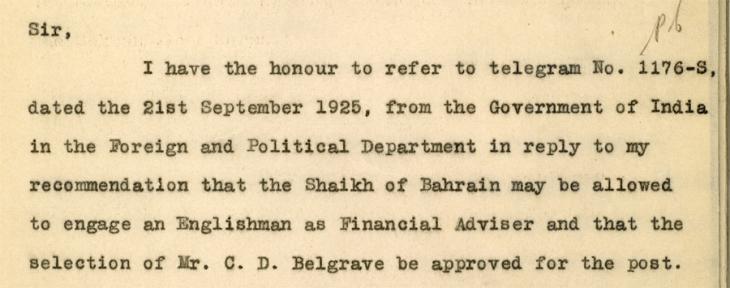
Elsewhere on the web
Suggested reading
Charles Belgrave, Personal Column (London: Hutchinson, 1960)
Mahdi Abdalla Al-Tajir, Bahrain, 1920–45: Britain, the Shaikh and the Administration, (London: Croom Helm, 1987)
Nelida Fuccaro, Histories of City and State in the
Persian Gulf
The historical term used to describe the body of water between the Arabian Peninsula and Iran.
: Manama since 1800 (Cambridge: Cambridge University Press, 2009)
Rosemary Said Zahlan, The Making of the Modern Gulf States Kuwait, Bahrain, Qatar, the United Arab Emirates and Oman (London: Unwin Hyman, 1989)
Simon C. Smith, Britain’s Revival and Fall in the Gulf: Kuwait, Bahrain, Qatar, and the
Trucial States
A name used by Britain from the nineteenth century to 1971 to refer to the present-day United Arab Emirates.
, 1950–71 (London: Routledge, 2013)
James Onley, The Arabian Frontier of the British Raj: Merchants, Rulers, and the British in the Nineteenth-Century Gulf (New York: Oxford University Press, 2007)
